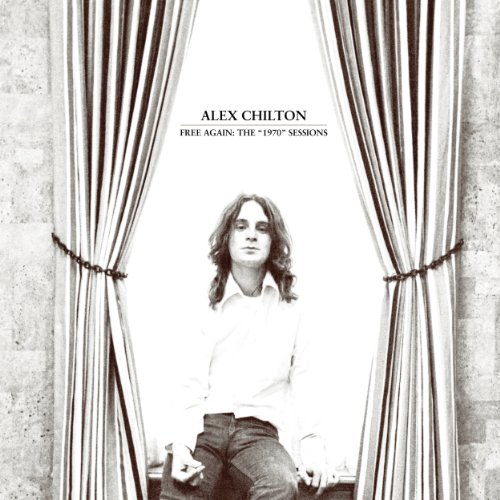
Alex Chilton
Free Again: The 1970 Sessions
Release Date: Jan 10, 2012
Genre(s): Pop/Rock, Rock & Roll, Roots Rock, Power Pop
Record label: Omnivore
Music Critic Score
How the Music Critic Score works
Buy Free Again: The 1970 Sessions from Amazon
Album Review: Free Again: The 1970 Sessions by Alex Chilton
Exceptionally Good, Based on 6 Critics
Based on rating 5/5
In 1969, even before the end of his Top 40 band the Box Tops, singer Alex Chilton started making his first solo album. In 1970, he abandoned it to co-found Big Star, the Memphis version of the Beatles. Free Again finds Chilton, not yet 20, in fast bloom. The title track, "The EMI Song (Smile for Me)" and "Every Day as We Grow Closer" are ravishing, original amalgams of the Beach Boys, the British Invasion and country soul.
Based on rating 9/10
Alex Chilton’s enduring popularity stems almost as much from his stature as a true rock ‘n’ roll rebel as it does from his musical talent. Chilton was commercially successful at a young age as the lead singer for the blue-eyed soul group the Box Tops; he was only 16 when “The Letter” hit #1 on the pop charts. As the story goes, Chilton was chained creatively by Dan Penn and Chips Moman, songwriters and musicians primarily known for churning out gritty southern soul work with the likes of James Carr and Aretha Franklin.
Based on rating 9/10
Alex Chilton fronted the Box Tops but he never led them. He was a hired hand, picked for his preternaturally soulful voice but, like any red-blooded American teen, he soon bristled against the constraints on his freedom. Chips Moman and Dan Penn masterminded the Box Tops, rarely letting Chilton record his own material, so he did what any rebellious adolescent would do: he sneaked around, cutting material at the fledging Ardent Studios without the knowledge of American Studios, who owned the rights to Chilton's recordings.
Based on rating 7.8/10
By 1970, Alex Chilton was barely old enough to vote but already enough of a music biz veteran to be completely jaded by the industry. His short tenure in the Box Tops produced two million-selling hits, "The Letter" and "Cry Like a Baby", but the group's sound and direction were determined almost exclusively by producers Chips Moman and Dan Penn, who rarely diverged from the group's R&B-laced rock'n'roll. They chose almost all of the Box Tops' songs, dictated how they should be sung, and relegated Chilton's own compositions to hastily recorded B-sides, denying the singer not only his creative freedom but potential royalties as well.
Based on rating B
One thing that instantly resonates about Alex Chilton‘s latest release is the fact that these “sessions” are from a hazy, important moment after Chilton’s somewhat straitjacketed Box Tops days and helped fuel the creative wonder to be found in his later Big Star work. Featuring six previously unreleased songs as well as the 12 track LP that constituted the now out of print Rhino-released 1970, it’s a window into a particularly interesting point in Chilton’s life, tellingly explained in the lyrics of the swaying “Free Again”: “I’m free again to sing my songs again, free again to end my longing to be out on my own again. ” The record was mixed and engineered by Terry Manning in Memphis’ Ardent Studios and carries something of the looseness of the studio’s atmosphere.
Based on rating 7/10
The final year of the 1960s was a tumultuous one for Alex Chilton. The group he started singing with at 16 years old, The Box Tops, released its final album, Dimensions, and Chilton, historically frustrated by the outside control over him and his group, decided to quit the band. The decision, of course, paved the way for the seminal Big Star recordings, but Chilton had been writing his own music for years before that band's debut, and by 1969, he was already laying down his own songs at Ardent Studio in Memphis.
'Free Again: The 1970 Sessions'
is available now

